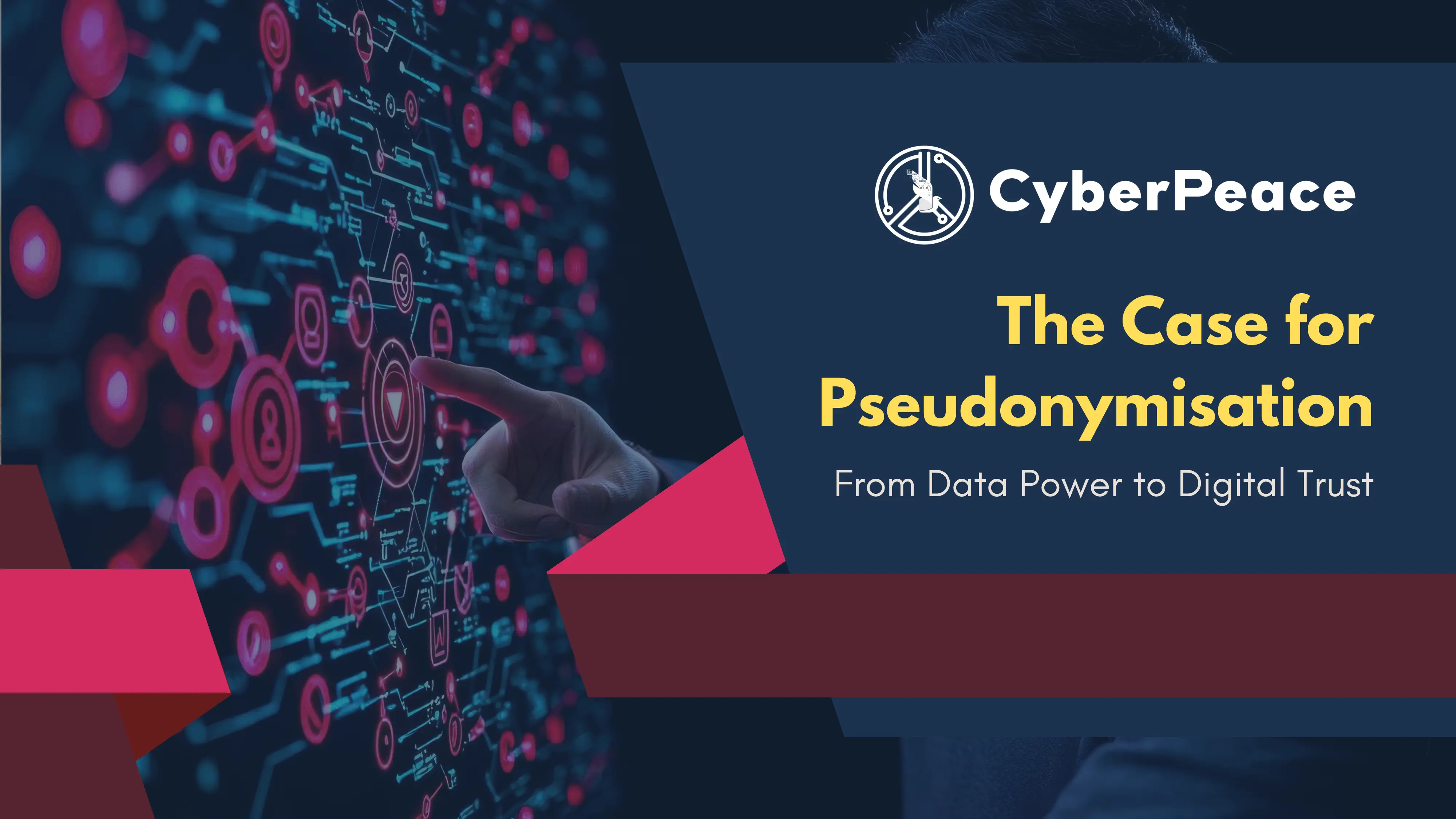Introduction
In today’s digital world, data has emerged as the new currency that influences global politics, markets, and societies. Companies, governments, and tech behemoths aim to control data because it accords them influence and power. However, a fundamental challenge brought about by this increased reliance on data is how to strike a balance between privacy protection and innovation and utility.
In recognition of these dangers, more than 200 Nobel laureates, scientists, and world leaders have recently signed the Global Call for AI Red Lines. Governments are urged by this initiative to create legally binding international regulations on artificial intelligence by 2026. Its goal is to stop AI from going beyond moral and security bounds, particularly in areas like political manipulation, mass surveillance, cyberattacks, and dangers to democratic institutions.
One way to address the threat to privacy is through pseudonymization, which makes it possible to use data valuable for research and innovation by substituting personal identifiers for artificial ones. Pseudonymization thus directly advances the AI Red Lines initiative's mission of facilitating technological advancement while lowering the risks of data misuse and privacy violations.
The Red Lines of AI: Why do they matter?
The Global Call for AI Red Lines initiative represents a collective attempt to impose precaution before catastrophe, which was done with the objective of recognising the Red Lines in the use of AI tools. Thus, anything that unites the risks of using AI is due to the absence of global safeguards. Some of these Red Lines can be understood as;
- Cybersecurity breaches in the form of exposure of financial and personal data due to AI-driven hacking and surveillance.
- Occurrence of privacy invasions due to endless tracking.
- Generative AI can also help to create realistic fake content, undermining the trust of public discourses, leading to misinformation.
- Algorithmic amplification of polarising content can also threaten civic stability, leading to a demographic disruption.
Legal Frameworks and Regulatory Landscape
The regulations of Artificial Intelligence stand fragmented across jurisdictions, leaving significant loopholes aside. Some of the frameworks already provide partial guidance. The European Union’s Artificial Intelligence Act 2024 bans “unacceptable” AI practices, whereas the US-China Agreement also ensures that nuclear weapons remain under human, not machine-controlled. The UN General Assembly has adopted resolutions urging safe and ethical AI usage, with a binding and elusive global treaty.
On the front of data protection, the General Data Protection Regulations (GDPR) of EU offers a clear definition of Pseudonymisation under Article 4(5). It also describes a process where personal data is altered in a way that it cannot be attributed to an individual without additional information, which must be stored securely and separately. Importantly, pseudonymised data still qualifies as “personal data” under GDPR. However, India’s Digital Personal Data Protection Act (DPDP) 2023 adopts a similar stance. It does not explicitly define pseudonymisation in broad terms, such as “personal data” by including potentially reversible identifiers. According to Section 8(4) of the Act, companies are meant to adopt appropriate technical or organisational measures. International bodies and conventions like the OECD Principles on AI or the Council of Europe Convention 108+ emphasize accountability, transparency, and data minimisation. Collectively, these instruments point towards pseudonymization as a best practice, though interpretations of its scope differ.
Strategies for Corporate Implementation
For a company, pseudonymisation is not just about compliance, it is also a practical solution that offers measurable benefits. By pseudonymising data, businesses can get benefits, such as;
- Enhancing Privacy protection by masking identifiers like names or IDs by reducing the impact of data breaches.
- Preserving Data Utility, unlike having a full anonymisation, pseudonymisation also retains patterns that are essential for analytical innovation.
- Facilitating data sharing can allow organizations to collaborate with their partners and researchers while maintaining proper trust.
According to these benefits, competitive advantages get translated to clauses where customers find it more likely to trust organizations that prioritise data protection, while pseudonymisation further enables the firms to engage in cross-border collaboration without violating local data laws.
Balancing Privacy Rights and Data Utility
Balancing is a central dilemma; on one side lies the case of necessity over data utility, where companies, researchers and governments rely on large datasets to enhance the scale of AI innovation. On the other hand lies the question of the right to privacy, which is a non-negotiable principle protected under the international human rights law.
Pseudonymisation offers a practical compromise by enabling the use of sensitive data while reducing the privacy risks. Taking examples of different domains, such as healthcare, it allows the researchers to work with patient information without exposing identities, whereas in finance, it supports fraud detection without revealing the customer details.
Conclusion
The rapid rise of artificial intelligence has led to the outpacing of regulations, raising urgent questions related to safety, fairness and accountability. The global call for recognising the AI red lines is a bold step that looks in the direction of setting universal boundaries. Yet, alongside the remaining global treaties, practical safeguards are also needed. Pseudonymisation exemplifies such a safeguard, which is legally recognised under the GDPR and increasingly relevant in India’s DPDP Act. It balances the twin imperatives of privacy, protection, and data utility. For organizations, adopting pseudonymisation is not only about ensuring regulatory compliance, rather, it is also about building trust, ensuring resilience, and aligning with the broader ethical responsibilities in this digital age. As the future of AI is debatable, the guiding principles also need to be clear. By embedding techniques for preserving privacy, like pseudonymisation, into AI systems, we can take a significant step towards developing a sustainable, ethical and innovation-driven digital ecosystem.
References
https://www.theverge.com/ai-artificial-intelligence/782752/ai-global-red-lines-extreme-risk-united-nations
https://www.techaheadcorp.com/blog/shadow-ai-the-risks-of-unregulated-ai-usage-in-enterprises/
https://planetmainframe.com/2024/11/the-risks-of-unregulated-ai-what-to-know/
https://cepr.org/voxeu/columns/dangers-unregulated-artificial-intelligence
https://www.forbes.com/sites/bernardmarr/2023/06/02/the-15-biggest-risks-of-artificial-intelligence/
https://artificialintelligenceact.eu/the-act/




















